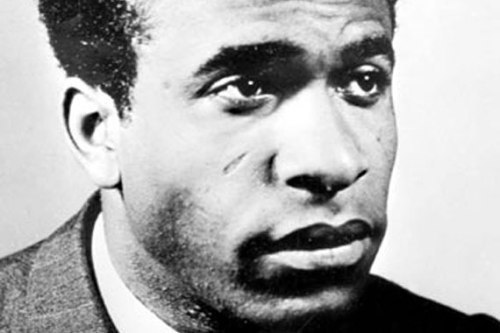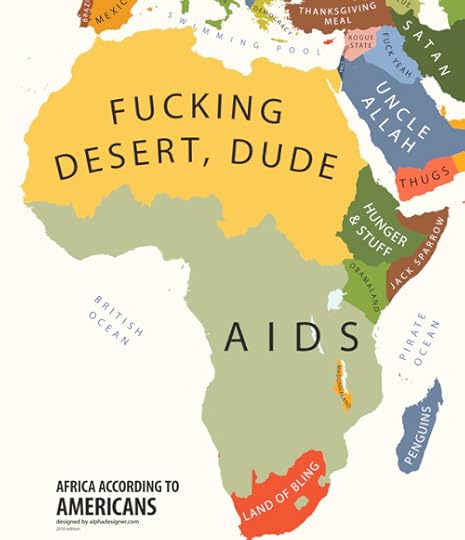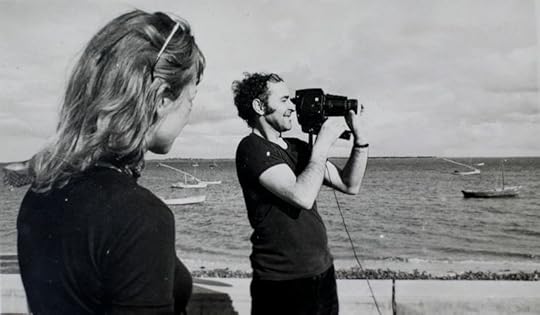Sean Jacobs's Blog, page 594
November 7, 2011
Wikipedia and oral knowledge
Verifiability and no original research are two core content policies for contributors to Wikipedia. You need to back entries with citations from print sources. What does that policy mean for societies with rich, oral knowledge cultures. Achal Prabhala, a Wikimedia fellow and a member of the Foundation's advisory board, and some of his colleagues in South Africa and India, have other ideas for that policy.Check out the film, "People are Knowledge (directed by Priya Sen and Zen Marie):








The Fashola Effect
Babatunde Fashola is considered of an exception in Nigerian (and African) politics. For one, he reads. He is "embarrassingly young." More importantly, he governs over what is probably is Africa's largest city, Lagos, with its 10 million people. (Lagos is projected to have 15 million inhabitants by 2025). His policy highlights includes: planned investment in infrastructure (bus transit and a commitment to high speed rail) and the public provision of AIDS drugs. He is not interested in making Lagos a European city "… because Europeans don't live there." But to make it a city where "life is sustainable." Western elites are taking notice of him. If you haven't heard of him, changes are your paper's roving African correspondent will profile him soon. You can see Fashola in action at the LSE in front of London's intellectual and policy elites here. I first heard of him because of his slick campaign to rebrand Lagos earlier this year. See for yourself on Youtube, especially the one above. Since I saw that video in April I wanted to learn more about him. Since then I have asked contacts with knowledge of the city's politics (I am being deliberately vague with their identities) what they thought of Fashola.
Below I print the responses of two of these. Here's my first informant:
Fashola is a phenomenon … The media campaign is super slick I have to say. I hadn't seen that first video [above] but that is a real image of Fashola that folks have of him.
Of course, there are a lot of politics here. Fashola was not [beholden to] the Yoruba elite when he first came into office. The story on the street was that he was told that if he didn't start paying up he wouldn't see a second term. His response was: "Only a dull child needs to repeat a class." So when they tried to get him out of office, they underestimated the power of popular opinion and left him alone. People were like, keep your hands off him.
So, that particular representation [in the video above] really emphasizes and exaggerates the vernacular image and popularity – although he is certainly not an elite aristocrat. He drives his own car (no massive entourages) and plays football with his pals on Sundays … So he is seen as a man of the people–that image of him standing on the bus feels completely true to folks. In any case, he has to rely on this popular image and capitalize on it because as of now his former sponsor or godfather (the former governor) is no longer protecting his political power – well it's more complicated than that but for the most part, popular power is key for him at the moment.
The reason why Action Congress probably took as many seats in the Southwest recently was most likely due to Fashola. The reason for the popularity is that he has been on a Lagos overhaul rampage. It's been pretty incredible. Wherever you drive in Lagos, something is being repaired–roads, ditches, gutters. His biggest feat was clearing out the Osodi expressway which had pretty much turned into a market over the years. No one ever imagined that was possible. He offered the area boys jobs as city gardeners, etcetera. I get mixed responses as to where things stand with him now. Some say that the pace of his Lagos overall is waning, but others say it's still good. There's lots to say about the guy. Esp the impact he has had on other governors and questions of governance – he does not play and does not mince words.
He may be the only viable candidate for the presidency. But he is not a typical politician and never really aspired to be one. He kind of fell into the job. But I wouldn't be surprised if he contested the presidency.
Here's my second informant:
I've been thinking about what you wrote me about Fashola … I took an interest in him while I was there and saw him speak a couple of time … Most people really like him–"he gets things done", etcetera–but don't think he'll be able to sustain a presidential bid without switching party. The only words of caution I heard were from a couple of well-informed veterans who alleged that he's … not that corrupt in the scheme of things.
One thing that I remember is that at an event that was basically the civil society launch of the new FOIA [Freedom of Information Act], he offered a bizarre variation on the Blairite mantra of rights and responsibilities – according to Fashola, "rights end where responsibilities begin."








The uncomfortable presence of Fanon
By Abdourahman Waberi
Still today Frantz Fanon is a great "… source of embarrassment, both to some who would claim the revolutionary Fanon as their own and to a French republicanism that prides itself on its universalism" (David Macey). Still today Fanon is difficult to categorize or classify (is he French, Martinican, Algerian, African or Black), Fanon remains an uncomfortable presence in his native Martinique, as well as in Paris, in Algiers and elsewhere. But luckily enough 2011 will soon see the 50th anniversary of Fanon's death and of the posthumous publication of his The Wretched of the Earth. Only this last week, four books came out from Paris. The most important of thèse books is the translation into French of the seminal 200o Frantz Fanon. A Biography by the late David Macey. Le Monde des livres had the news last week.








November 5, 2011
Paris, France, No. 1
What do the masses listen to in Paris? My French-Algerian connection promised to do an occasional round-up of what's popular on the streets and on phones (and in car stereo systems) of the French capital. Here's round one. It's a smooth, R&B ride:
First up, live footage of Monsieur Nov, the "bald Chinese" (his first album, "Sans dessus de Soul," is her favorite):
Awa Imani, the daughter of a Guinean singer father and Senegalese dancer mother, has been singing since she was 9. She was first noticed when she performed on the single "Celebration," with 113 (featured on this blog) and the actor Jamel Debouzze, where she sang the hook:
Then there's Isleym, a 16 year old singer discovered (thanks to Nessbeal) for the song "A chaque jour suffit sa peine":
Now she's working on her own album. The first song named "Avec le temps":
Leila is a is a Canadian singer (like the male crooner Corneille; also big in France). This is the video for her song, "Passeport":








November 4, 2011
Music Break. Bonus Friday Edition
Last week we brought you the serious side of Burkina rapper Mokobe. In this hilarious video he makes proper use of a beat made famous by 50 Cent:
Belgian hipsters: Magic Mirror's "Show man":
Cities Aviv's "Araw." The guest rapper is Royal T. Yeh, they're hipsters too.
What's it with Nigerians and derivative R&B? This is 2Face, basically the national face of the genre. (I suppose there are rewards: you have to endure American TV chat show hosts.)

Finally, if you still don't know what's Azonto about:
H/T:








Africa Gathering
I'm in DC this weekend for the Africa Gathering social entrepreneurship conference. (Video of the London meeting above.) If you're in the Washington area, come here me give a talk on African music and its place in the international industry (something we've covered on this site before.) Then, I'm headed back to NY for this.








The Mapping Stereotypes Project
Found Objects No. 16
In 1978 Jean-Luc Godard and his partner Anne-Marie Miéville traveled to Mozambique on the invitation of the new government to advice the latter on the start-up of a national television system.
[image error]







Denzel Washington is a Cape Town cop
The trailer for the new Denzel Washington-Ryan Reynolds feature "Safe House," just got released officially on the interwebs yesterday. The film centers around rogue CIA agent Tobin Frost (Washington in Training Day mode again) on the run from a generic group of bad guys. Reynolds' character, the CIA safe house's caretaker in Cape Town, has been given the task of moving him to the next secure location. Cue endless chase scenes and explosions.
The reason why I'm excited about this is that it is shot and set in Cape Town.
Usually when Hollywood comes to our doorstep they use Cape Town as a cheap stand in for downtown LA, Rio, or anywhere else in Africa. We rarely get to see our city on screen, and almost never is it represented authentically.
It's fun to see not just the expected swooping helicopter shots over Table Mountain, but a chase scene in Lower Main Road Woodstock; De Waal drive (with its view of Table Bay) and Denzel dressed up in South African Police uniform. Nice use of the Kanye West/ Jay – Z track "No Church in the Wild" as well. Time will tell if the film is any good. I have hope.








'Suit Up'
Nice video (Tiro Rose) and photographs (Ference Isaacs) of hip hop dancers from all over Cape Town, South Africa.








Sean Jacobs's Blog
- Sean Jacobs's profile
- 4 followers





















